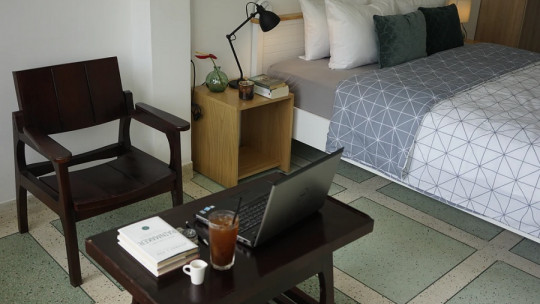A long time ago, taking therapy off the couch was a small revolution, with its detractors and believers. And a few years ago, coaching began to leave the office with the practices of walking therapy, therapeutic walks, therapeutic trips…
Today, our hyperconnected world is trying to take the psychotherapy service from face to face with the therapist and bring it to you, wherever you are, with the only requirement of having an Internet connection.
Some have already taken the step, others probably never will. It’s a matter of sensitivity, of course, but… is it as effective as face-to-face therapy?
In this time of COVID-19, it is more necessary than ever to take stock of this technology that all professional associations suggest be used massively.
Understanding telepsychology
Telepsychology is the name that psychologists give to any therapy or support provided by telecommunication instruments or devices. There are other more common names such as online therapy, e-therapy, virtual therapy…
Every time you interact with a therapist using a telecommunication service (email, phone, chat…), you are doing telepsychology. Therefore, you have already used this type of service, at least to make your first appointment.
Various researchers are also very interested in telepsychology and telehealth, and are trying to evaluate their effectiveness, particularly in relation to face-to-face and in-office psychotherapy sessions. But Like the technology, the research on it is still new, and there is much that is not yet known.
What patients say about online therapy:

The search for efficiency in online therapy
In general terms, teleconsultation is as effective as traditional therapy. And certain therapeutic practices are better suited to online consultation, such as behavioral therapies.
The field of pathologies that revolve around anxiety (agoraphobia, stress, PTSD…) is carried out with similar effectiveness both through online and face-to-face therapy.
It is easier for a person with anxiety to trust a screen. And it is easier to find a therapist who is available for a person with severe agoraphobia who consults online than a therapist who comes to the home.
Current research is increasingly specific and evaluates the effect of teleconsultation on different pathologies and each time we obtain results that are quite similar to traditional face-to-face therapy.
Online psychological therapy is a form of support as effective as traditional face-to-face counseling for the vast majority of psychological difficulties encountered in the consultation. And, like everything, it has its advantages, its specificities, its disadvantages and its limits. However, remains an alternative solution to traditional face-to-face advice being no less effective for most psychological problems.









